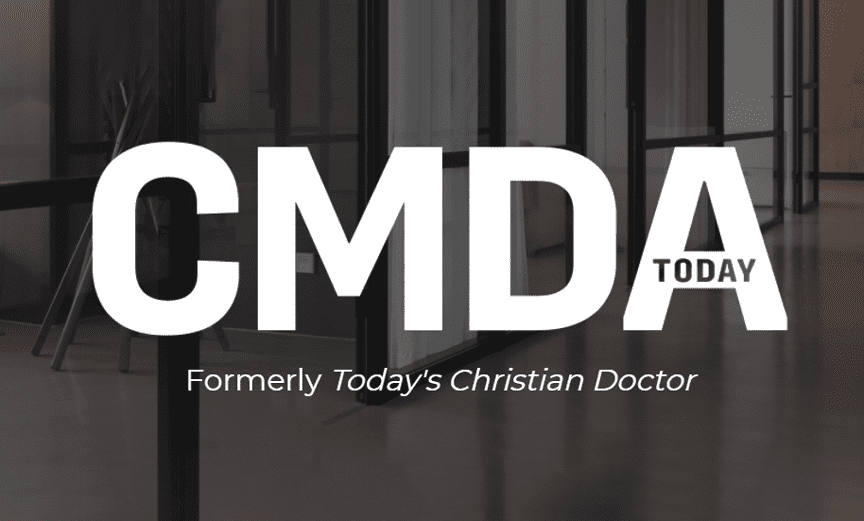
ETHICAL VACCINES: Ready for a shot in the arm?
With millions of COVID-19 vaccine doses already plunged into American arms and hundreds of million more doses on the way, can healthcare professionals confidently receive the vaccines themselves and also recommend them for patients? While responses to this question often involve important emotional factors that need to be addressed, this article focuses on three rational considerations: safety, efficacy and ethics.
by Jonathan Imbody, MEd, and Jeffrey J. Barrows, DO, MA (Ethics)
With millions of COVID-19 vaccine doses already plunged into American arms and hundreds of million more doses on the way, can healthcare professionals confidently receive the vaccines themselves and also recommend them for patients?
Safety
The federal government’s revolutionary Operation Warp Speed program produced not just one but several vaccines with breathtaking speed.[1] This amazing success put vaccines into arms by December 2020, less than a year since the pandemic broke out.
Not so fast, said many Americans-including a surprising number of healthcare professionals. A December 2020 Kaiser Family Foundation poll uncovered a concerning number of American vaccine skeptics, with notably high concentrations in several groups:
Clear explanations for the vaccine hesitancy require drilling down into these responses in greater detail, but a few speculations may help shed some light on the findings.
- Republicans, and conservatives in particular, tend to view government programs skeptically, mirroring the thinking of revolutionary forebears who instituted checks and balances on government power.
- Adults aged 30 to 49 are more likely than other age groups to have children, and anti-vaccination arguments are salient issues in the parent community, since each parent faces decisions about their children’s vaccination.
- Resistance of rural residents might be explained in part by a tendency toward personal independence versus conforming to institutional goals, as demonstrated by choosing to live in greater privacy, away from population and government centers.
- Black adults’ hesitancy may reflect perception and recognition of injustices in medical programs, such as the infamous and unethical Tuskegee experiments.
The vaccine resistance of healthcare professionals, however, seems counterintuitive. Healthcare professionals of all people would be expected to appreciate the risk-benefit advantages of a vaccine compared to contracting disease.
However, healthcare professionals also likely would be familiar with the normally long length of time it takes for vaccine testing, production and approval. If a healthcare professional does not realize the factors that allowed Operation Warp Speed to shrink the normal vaccine timetable so dramatically, the shorter time frame may raise suspicions of skirting safety assurance. Combine that suspicion with suspicions of political influence, and vaccine hesitancy predictably results.
The unprecedented speed of the COVID vaccines resulted primarily from two factors: recent scientific advances and the production of vaccines parallel to the testing processes.
As outlined in a Los Angeles Times article,
“[A] discovery was made in 2013, when [Dr. Barney] Graham, the deputy director of NIH’s Vaccine Research Center, and his colleague Jason McLellan were investigating a decades-old failed vaccine against RSV, a childhood respiratory illness.
“They homed in on the right structure for an RSV protein and learned genetic tweaks that stabilized the protein in the correct shape for vaccine development. They went on to apply that lesson to other viruses, including researching a vaccine for MERS, a COVID-19 cousin, although it hadn’t gotten far when the pandemic began.
Besides the pre-existing technological foundation that accelerated COVID-19 vaccine development, the federal government also took an unprecedented, calculated financial risk, by investing billions in vaccine production concurrent with the vaccine trials. By jump-starting vaccine production long before the U.S. Food and Drug Administration (FDA) rendered its judgment, Operation Warp Speed trimmed months off the normal linear vaccine evaluation and production timetable.
As a result, the federal government already had millions of doses in store and ready to fly out the door literally hours after the FDA announced Emergency Use Authorizations (EUA). The FDA issued an EUA first for the Pfizer-BioNTech vaccine on December 11, 2020 and then for the Moderna vaccine a few days later on December 18, 2020. Both vaccines employ similar messenger RNA technology.
The FDA website explains the objective and thorough process involved in an Emergency Use Authorization process:
“From a safety perspective, FDA expects an EUA submission will include all safety data accumulated from phase 1 and 2 studies conducted with the vaccine, with an expectation that phase 3 data will include a median follow-up of at least 2-months (meaning that at least half of vaccine recipients in phase 3 clinical trials have at least 2 months of follow-up) after completion of the full vaccination regimen.
“After FDA receives an EUA request, our career scientists and physicians will evaluate all of the information included in the manufacturer’s submission. While FDA’s evaluation is ongoing, we will also schedule a public meeting of our Vaccines and Related Biological Products Advisory Committee, which is made up of external scientific and public health experts from throughout the country. During the meeting, these experts, who are carefully screened for any potential conflicts of interest, will discuss the safety and effectiveness data so that the public and scientific community will have a clear understanding of the data and information that FDA is evaluating to make a decision whether to authorize a COVID-19 vaccine for emergency use.
Efficacy
Regarding the Moderna and Pfizer-BioNTech vaccines, the CDC noted, “Preliminary data suggest high vaccine efficacy in preventing COVID-19 following receipt of two doses of mRNA COVID-19 vaccine (Pfizer-BioNTech: 95.0% [95% CI: 90.3%, 97.6%]; Moderna: 94.1% [95% CI: 89.3%, 96.8%]).”[8] Ethics
(Editor’s Note: In November 2020, Public Discourse published a version of the following content on ethical considerations regarding the Pfizer-BioNTech vaccine written by the authors. It is re-printed with permission with changes reflecting the approval of the vaccines.)[11] Is Receiving the Pfizer-BioNTech COVID-19 Vaccine Ethical?
On November 9, 2020, pharmaceutical giant Pfizer and biotech company and cancer treatment specialist BioNTech stunned the world with the announcement that a “vaccine candidate was found to be more than 90% effective in preventing COVID-19 in participants without evidence of prior SARS-CoV-2 infection in the first interim efficacy analysis.”[12] The 90 percent success rate far exceeded experts’ hopes of a 50 to 70 percent effective rate and promised ultimately a potential curb on the global pandemic that has crippled the world’s economy.
So, what do we know of the vaccine’s ethical considerations, given controversies with some vaccines over the use of cell lines from aborted babies? In brief, the Pfizer-BioNTech vaccine was not developed or produced using any tissue from an aborted child, though it did make use of a biological assessment tool that relies on a cell line (HEK-293) derived from an aborted baby in 1972. Ethical considerations including loving our neighbor, the unavailability of ethical alternatives and distance in participation and time from the original unethical act make this vaccine a candidate for morally licit use. Let us explain.
Key Principles Can Guide Sound Decision-Making
In a recent Public Discourse essay, Tadeusz Pacholczyk, PhD, examined the ethics and seemingly abortion-endorsing effect of the U.S. government’s “channeling of hundreds of millions of dollars of taxpayer funds directly into the development of COVID-19 vaccines that utilize abortion-derived cells for their production.”[13] The apparent concession to abortion-implicated vaccines came at the same time the U.S. Department of Health and Human Services-based on recommendations by an ethics advisory board on which Dr. Pacholczyk served-was putting the kibosh on government funding of fetal tissue research that relies on cell lines from aborted babies.
Pacholczyk argued that, while “individual end users have no direct causal connection to those wrongful decisions made previously by others…none of us should have to take drugs that have any connection, even a very remote one, to abortion.”
Operation Warp Speed has funded six vaccine candidates, all of which are associated, though in differing ways as explained below, with cell lines from an aborted baby. The Pfizer-BioNTech vaccine is associated with the HEK-293 cell line, derived from an abortion nearly half a century ago.
We agree with Dr. Pacholczyk on the need for government to provide clearly licit options, and we have encouraged the administration to develop morally uncontroversial drugs rather than those tainted by any abortion connection. We do not see quite as clear a definitive divorce of the end user’s acceptance from the drug developer’s actions as Dr. Pacholczyk and Tollefsen suggest. As to future harm, we are convinced of the need to clarify the difference between ethical concession and ethical acceptance, in part to avoid emboldening future abortion-implicated research and development.
While agreeing that end users have no direct causal connection to others’ illicit acts, that fact alone is not in our opinion sufficient for arriving at a clear-conscience decision to receive this specific vaccine. Such a conclusion requires weighing relative harms and benefits.
Weighing an indirect user connection concern alongside other ethical considerations is required in the case of the Pfizer-BioNTech vaccine. Several mitigating principles can help assuage the concerns of conscientious end users of drugs that have some connection to abortion: the distance in time from the original abortion to the present use of the drug and the lack of availability of any ethical alternatives.
Ethical Analysis of the Pfizer-BioNTech Vaccine
CMDA has an ethics statement that can help guide individuals’ analyses of immunizations and the potential for moral complicity with evil:
- “Using technology developed from tissue of an intentionally aborted fetus, but without continuing the cell line from that fetus, may be morally acceptable.
- “Continued use of a cell line developed from an intentionally aborted fetus poses moral questions and must be decided as a matter of conscience, weighing the clear moral obligation to protect the health of our families and society against the risk of complicity with evil.
- “Using a vaccine that requires the continued destruction of human life is morally unacceptable.”[15]
In a recent virtual meeting between faith leaders and government officials leading the charge against the pandemic, Jonathan posed the question this way to Dr. Francis Collins, the director of the National Institutes of Health: “Some have expressed conscience concerns about vaccines that rely on an abortion-derived cell line for production, such as the AstraZeneca-University of Oxford vaccine and the Janssen Research-Johnson & Johnson vaccine. What are your thoughts on these concerns, and how confident are you that at least one vaccine that does not rely on an abortion-derived cell line for production will be available?”
While the off-the-record meeting precludes direct quotes, we can say Dr. Collins respectfully addressed this concern, highlighting the length of time since the cell lines used in the various Operation Warp Speed vaccines were developed from abortions in 1972 (HEK-293) and 1985 (PER.C6). He referenced the administration’s recent decision not to use NIH funds for certain fetal tissue research. Dr. Collins also invoked the ethical analysis that the use of such a vaccine may be permissible in the absence of any ethical alternative, while suggesting the odds looked good that at least one vaccine of the six U.S.-funded candidates would satisfy pro-life concerns.
Is the Pfizer-BioNTech vaccine just such an ethically acceptable vaccine? The answer depends on careful analysis of the vaccine’s implications with respect to abortion. Each of the six COVID-19 vaccine candidates funded under Operation Warp Speed has or is presumed to have had some interaction with a cell line derived from an abortion performed decades earlier. (One company, Sanofi Pasteur, has not yet published documentation that would allow definitive confirmation of abortion-related interaction. The company did recently discontinue its Poliovax polio vaccine, which used the aborted fetal cell line MRC-5.)
The absence of any completely untainted ethical choice triggers the ethical principle that in such cases, an individual may in good conscience receive a vaccine in spite of the abortion connection when the good of protecting oneself and others from harm arising from vaccination outweighs the harm arising from the abortion connection. In the case of potentially six vaccines becoming available, we want to choose the vaccine offering the least ethically problematic option.
Deciding which COVID-19 vaccine poses the least ethical concerns hinges in part on the implication of abortion in the initial design of the vaccine, the confirmatory testing of the vaccine and the ongoing production of the vaccine. Vaccines that continue to use the abortion-derived cell line in ongoing production pose the most obvious ethical barrier to use by pro-life individuals. This category includes vaccines by AstraZeneca-University of Oxford and Janssen-Johnson & Johnson. In fact, these vaccines employ abortion-related cell lines in all three stages-design, confirmation and production.
The Pfizer-BioNTech vaccine uses a new vaccination platform that injects messenger RNA (mRNA) into muscle cells of the subject. Once incorporated into the cells, they begin to manufacture and release the same spike proteins found on the surface of the SARS-CoV-2 virus. The presence of these spike proteins elicits an immune response within the individual, introducing a new protection from the virus.
Unlike the aforementioned COVID-19 vaccine candidates that rely on abortion-derived cells for their ongoing production, the Pfizer-BioNTech vaccine used the HEK-293 cell line from a 1972 abortion only to confirm that messenger RNA was properly coding for the spike protein of the SARS-CoV-2 virus. While still ethically disconcerting, the fact that this remote and limited interaction with abortion does not involve the continuing use of an aborted fetal cell line makes it less ethically problematic compared to its competitors that use these cell lines for ongoing vaccine production.
Tollefsen offered perhaps the most compelling and easily appreciated consideration for use of an abortion-tainted vaccine: “Refusal to vaccinate oneself and one’s children will not only put oneself and one’s family at risk; it will put others, especially the vulnerable elderly and those suffering from certain chronic illnesses, at significant risk as well.” This consideration goes to the heart of Christian ethics in a way that virtually every believer understands: Vaccinating yourself and those who depend on you is an important component of following the command to love thy neighbor.
What’s Next?
Since portions of this essay were originally published, both Pfizer and Moderna received EUAs through the FDA. Both also made use of a biological assessment tool using the HEK-293 cell line, and neither will use a fetal cell line for ongoing manufacture of the vaccine. The next ethical decision is deciding how to distribute the vaccines, given that the initial production was not enough to vaccinate everyone. The Trump administration emphasized a priority of vaccinating first responders and vulnerable populations including the elderly. President Joe Biden’s COVID-19 task force includes Affordable Care Act architect Dr. Ezekiel Emanuel, who in an interview on the Biden administration’s strategy with respect to the virus asserted, “You’re going to see a very different approach here.”[16]
Besides his staunch opposition to conscience rights in healthcare,[17] Dr. Emanuel opined in an essay entitled “Why I Hope to Die at 75” that “living too long is also a loss. It renders many of us, if not disabled, then faltering and declining, a state that may not be worse than death but is nonetheless deprived.”[18] Should Dr. Emanuel’s views on aging prevail in the government’s determination of vaccine priority, our challenge may not be simply deciding whether or not the vaccine is ethically permissible but also whether government officials consider our lives worth preserving.
In contrast to Dr. Emanuel, we place high value on the lives of the elderly, and we actually find that consideration a compelling factor in considering whether or not to receive a vaccine with an ethical profile such as the Pfizer-BioNTech vaccine.
Conclusion
We recognize that each individual must weigh ethical considerations before making a vaccine decision. When we examine the Pfizer-BioNTech and the Moderna vaccines in light of ethical principles of (a) loving our neighbor by protecting them through our own vaccination, (b) the distance in time from an abortion connection and (c) the fact that the vaccine does not continue to use cell lines derived from an abortion, we find these factors considerable in mitigating the ethical concerns and opening the door to receiving the vaccines in good conscience.
If these ethical principles comport with your conscience convictions, and the safety and efficacy evidence prove satisfactory, you can confidently roll up your sleeve for a vaccine shot and encourage patients and friends to do the same.
Jonathan Imbody, MEd, serves as CMDA’s Director of Federal Government Relations. As CMDA’s liaison with the federal government, participates in White House events and makes personal contacts with government officials. A veteran writer of more than 40 years, Jonathan authored Faith Steps, which encourages and equips Christians to engage in public policy issues. More than 100 of his commentaries have been published in The Washington Post, USA Today, New York Times, Los Angeles Times, San Francisco Chronicle, Chicago Sun-Times and other national publications. Jonathan received his bachelor’s degree in journalism and speech communications from the Pennsylvania State University, a master’s degree from Penn State in counseling and education and a certificate in biblical and theological studies from the Alliance Theological Seminary in New York. His wife Amy is an author, and they have four children and four grandchildren.
Jeffrey J. Barrows, DO, MA (Ethics), serves as CMDA’s Senior Vice President of Bioethics and Public Policy. He is an obstetrician/gynecologist, author, educator, medical ethicist and speaker. He completed his medical degree at the Des Moines College of Osteopathic Medicine and Surgery in 1978 and his residency training in obstetrics and gynecology at Doctors Hospital in Columbus, Ohio. He also completed a master’s in bioethics from Trinity International University in Chicago, Illinois. He dedicated 15 years of his career to fighting against human trafficking within the intersection of trafficking and healthcare, as well as the rehabilitation of survivors of child sex trafficking. In 2008, he founded Gracehaven, an organization assisting victims of domestic minor sex trafficking in Ohio. In 2020, Dr. Barrows published a novel entitled Finding Freedom that realistically portrays child sex trafficking in the U.S.
[1] https://www.hhs.gov/coronavirus/explaining-operation-warp-speed/index.html
[2] https://www.kff.org/coronavirus-covid-19/report/kff-covid-19-vaccine-monitor-december-2020/
[3] https://www.latimes.com/world-nation/story/2020-12-07/years-of-research-laid-groundwork-for-speedy-covid-19-shots
[4] https://www.latimes.com/world-nation/story/2020-12-07/years-of-research-laid-groundwork-for-speedy-covid-19-shots
[5] https://www.fda.gov/vaccines-blood-biologics/vaccines/emergency-use-authorization-vaccines-explained
[6] https://www.fda.gov/vaccines-blood-biologics/vaccine-adverse-events/vaers-overview
[7] https://www.cdc.gov/coronavirus/2019-ncov/vaccines/safety/vsafe.html
[8] https://www.cdc.gov/vaccines/covid-19/info-by-product/clinical-considerations.html
[9] https://www.cnn.com/2020/11/09/health/pfizer-covid-19-vaccine-effective/index.html
[10] https://investors.modernatx.com/news-releases/news-release-details/moderna-announces-primary-efficacy-analysis-phase-3-cove-study
[11] A version of this essay originally appeared at Public Discourse: The Journal of the Witherspoon Institute. Please visit www.thepublicdiscourse.com for more information. It is reprinted in CMDA Today with permission.
[12] https://www.pfizer.com/news/press-release/press-release-detail/pfizer-and-biontech-announce-vaccine-candidate-against
[13] https://www.thepublicdiscourse.com/2020/10/72350/
[14] https://www.thepublicdiscourse.com/2020/05/63447/
[15] https://cmda.org/wp-content/uploads/2018/04/Immunization.pdf
[16] https://www.usatoday.com/story/news/health/2020/11/08/president-joe-biden-bring-new-approach-fighting-covid-pandemic/6061690002/
[17] https://freedom2care.blogspot.com/search/label/ConscienceEssay
[18] https://www.theatlantic.com/magazine/archive/2014/10/why-i-hope-to-die-at-75/379329/
This Feature Story Appears in:
Other Recent CMDA Today Articles:
- « Previous
- 1
- …
- 3
- 4
- 5




